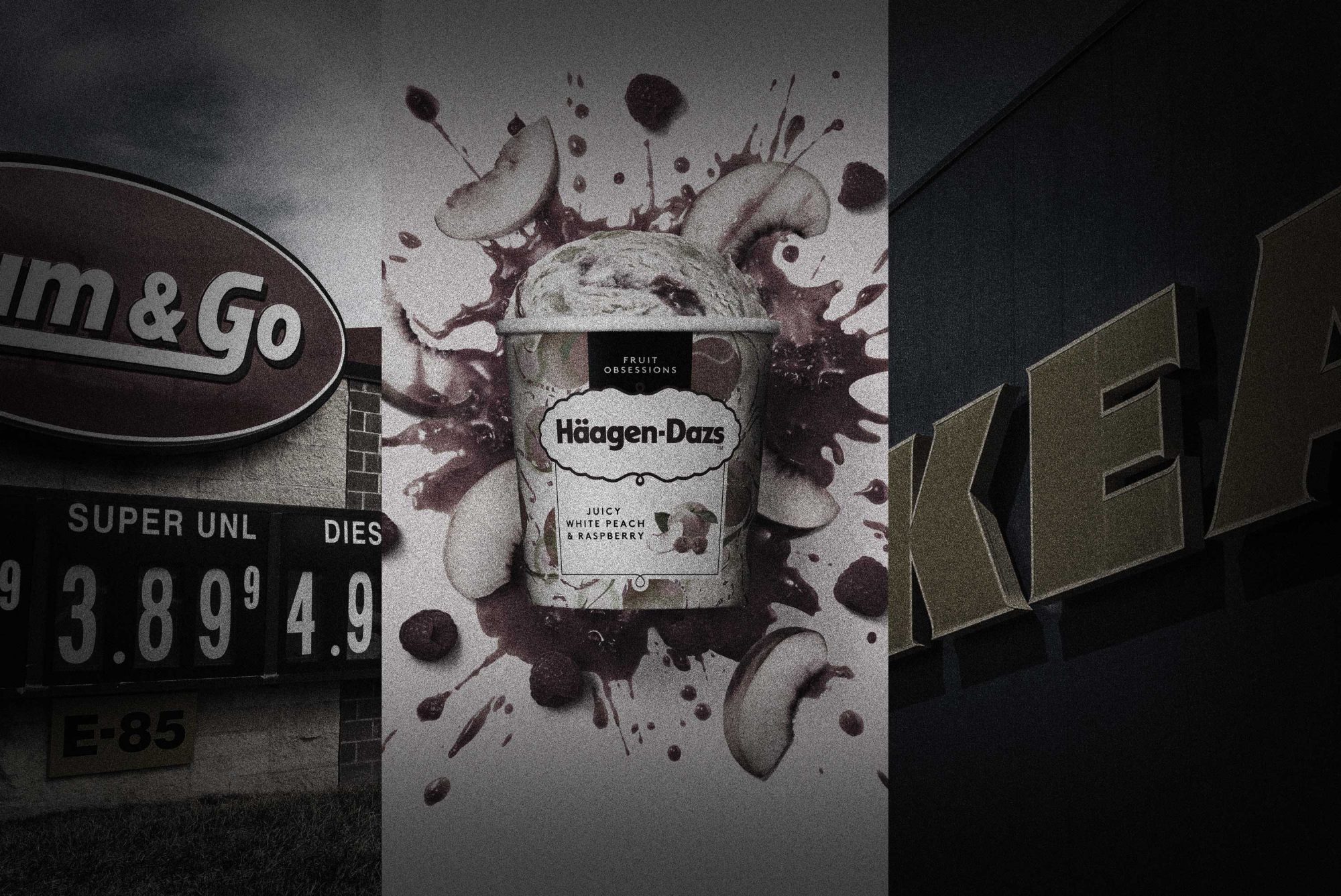8 horrifyingly successful company names
And the important lesson they teach us about naming

October is the perfect time to dive into a topic that strikes fear into the hearts of founders and executives: naming. Nothing breeds more C-suite paranoia than the process of choosing a name. Many believe that the company’s moniker is the single most critical decision of their professional lives and that a misstep could instantly doom the brand to the graveyard of failed businesses with botched names.
Yet there are hundreds of companies with dreadful names. Big companies. Thriving companies. Beloved brands that have succeeded despite having a name that, by all objective considerations, should have rendered them dead on arrival.
Below is a list of eight horrifyingly successful company names. These names prove the core argument of this article: that the importance of a company name is often overblown. And that even the most monstrous moniker, when supported by consistent brand-building efforts, can rise from the ashes.
…even the most monstrous name, when supported by consistent brand-building efforts, can rise from the ashes.”
8. Google
It’s hard to imagine a naming agency entering a conference room, presenting this nonsensical babble as a serious naming candidate, and not getting laughed out of the building and the account. It’s not even spelled right. The word is “Googol”. So how did this absurd typo become one of the most powerful brands in history? By filling it with meaning through consistently awesome brand experiences.
7. Lululemon
If you don’t know the origin story of this ridiculous name, Google it. It’s appalling. So appalling that the founder (and namer) got a $845M payday and Lululemon is now a $34 billion company. How could any company survive such a disastrous name? Easy—great product design, great branding, and great marketing. Lululemon proves that a company can survive a name that is luludicrous, unpronounceable, and culturally offensive, all at once.
6. Haagen-Dazs
Those who speak Danish will of course know that the phrase “haagen-dazs” translates loosely to…absolutely nothing. It’s Nordical nonsense. It’s made-up gibberish intended to give this very American ice cream a European flair. And it checks all the boxes of a name that is sure to fail: Unpronounceable? Check. Unspellable? Check. Hyphenated? Check. And yet there you are, alone with a pint, reading this article.
5. IKEA
No naming horror show would be complete without an acronym. Here’s something you’ll wish you didn’t know: IKEA stands for Ingvar Kamprad (the founder), Elmtaryd (his family farm), and Agunnaryd (his hometown in Sweden). Luckily, those barely related terms start with letters that just seem to flow together. We’re kidding, it’s naming carnage. And yet there you are, eating your Haagen-Dazs, sitting on a Poäng.
Sign up for more Traina news, insights and updates.
By signing up to receive emails from Traina, you agree to our Privacy Policy. We treat your info responsibly. Unsubscribe anytime.
4. Pepsi
Picture this: You’re launching a new beverage brand, and you’ve hired an agency to come up with a name. The date of the first naming presentation arrives, and you couldn’t be more excited. After the typical rigmarole, the agency unveils just one name: “Pepsi.” OK, weird, you think. But the agency lead, sensing your hesitation, leans in to seal the deal and says: “Here’s the best part: it’s short for ‘dyspepsia,’ or indigestion.”
3. Microsoft
Nothing screams scale and strength like the words “micro” and “soft,” right? Microsoft would have been the logical choice for a company that produces premium pillows. Or mini plush toys. Or baby wipes. But a global tech juggernaut? It’s just further proof that through the magic of branding, company names are quickly redefined in the minds of consumers. Honorable mention goes to “Azure”, Microsoft’s wholly unpronounceable and yet most lucrative cloud platform.
2. Ruth’s Chris Steakhouse
Here’s the story behind this name wreck: In 1965 a woman named Ruth purchased a New Orleans restaurant called “Chris Steak House”—already an awful name. 10 years later, a fire burned it to the ground. Ruth relocated but, for some legal reason, couldn’t reuse the original name. Her solution? The garbled mess that no one can clearly remember or say: “Ruth’s Chris Steakhouse.” The consequence of such a hack job? 150 locations across North America and growing.
1. Kum & Go
The horror. Surely this demented name dragged its naughty owner to an early grave, right? You guessed it: steady growth now reaching 400 locations across 13 states, and a 2023 acquisition estimated to be valued at $2B. The point here is not to condone or encourage this level of absurdity. But it does raise a question: if a company with blatant sexual innuendo in its name can succeed—how bad does a name have to be to fail?
Don’t be afraid
Take comfort in the fact that these and countless other companies have thrived despite having gruesome names. Names are essentially blank slates—empty vessels filled with meaning through consistent brand-building efforts. So don’t overthink it. Don’t let the process paralyze you with fear. Choose a name that you can live with, activate your brand, and watch as your moniker takes on an entirely new meaning in the minds of your customers.
And if you need someone to hold your hand as you journey through your own house of naming horrors, we’re here for you.